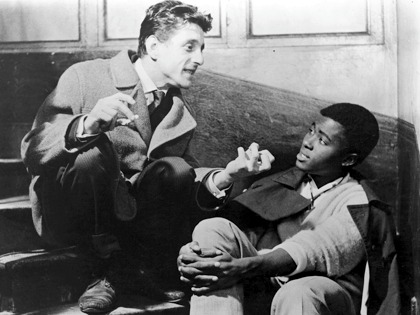Festivals
Cannes 2011: The S&S blog
Happiness is a cinéma verité classic

Agnieszka Gratza, 17 May
A few days into the Cannes Film Festival, it dawns on me that if I see yet another feature delving into the lives of prostitutes, paedophiles, and (mass) murderers I’ll lose the will to live. No matter how new the take on each of these tried and tested themes – and films such as Julia Leigh’s Sleeping Beauty, Hagar Ben Asher’s The Slut and Rebecca Daly’s The Other Side of Sleep, for all their shortcomings, certainly have arresting premises – I cannot help but feel growing crime-and-misdemeanour fatigue.
Argos Films’ digital restoration of Chronique d’un été (Chronicle of a Summer), a landmark in documentary filmmaking shown as part of Cannes Classics, proves the perfect antidote. In a series of interviews filmed during the summer of 1960, at the height of the Algerian War, anthropologist Jean Rouch and sociologist Edgar Morin asked for the most part ordinary, working-class people whether they considered themselves happy. (“Almost”, a woman replies in one of many disarming and increasingly revealing answers to this question.) Agnès Varda, whose presence at the screening was acknowledged by a round of applause, turned to the same subject in her stunning colour-drenched 1965 feature Le Bonheur.
What made Chronique d’un été groundbreaking for generations of filmmakers, starting with the French New Wave, is not so much the enduring relevance of the subject as its experimental approach to documentary-making, from the then-revolutionary use of hand-held cameras and portable sound-sync equipment to the consciously self-reflexive structure that sees the directors film participants’ responses to the screening of the rest of the documentary. Rouche and Morin coined the term cinéma verité to describe their working method, aimed at eliciting truthful responses from their subjects. If documentary features such as this one still strike a chord with viewers today, 50 years on, it’s surely a sign that a film’s ability to provoke rests on more than its shock-value.
« Sexual relations: Oedipus and Elektra cruise the Croisette
See also
La Danse the Paris Opera Ballet reviewed by Kate Stables (May 2010)
Direct action hero: Tim Lucas on the documentaries of Chris Marker (June 2008)
A little learning: Peter Matthews praises Abbas Kiarostami’s documentary Homework (June 2002)
Paris match: Geoffrey Nowell-Smith on the post-war Paris that produced Godard, Cahiers du Cinema and the French New Wave (June 2001)
